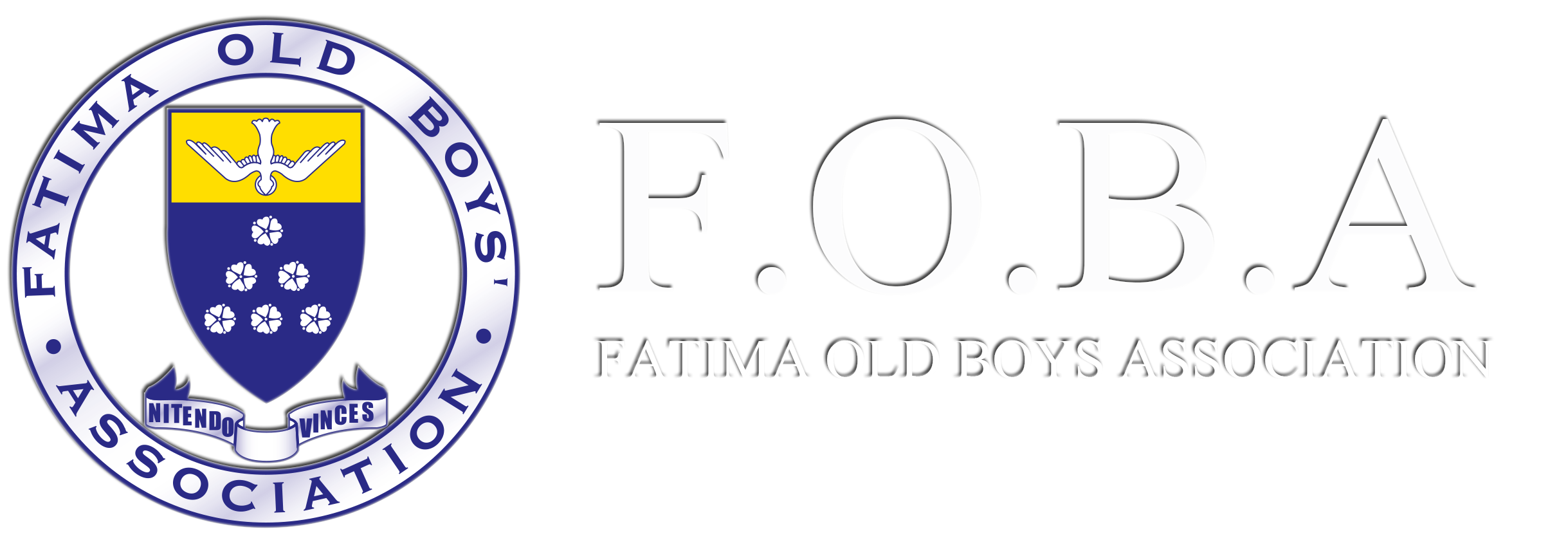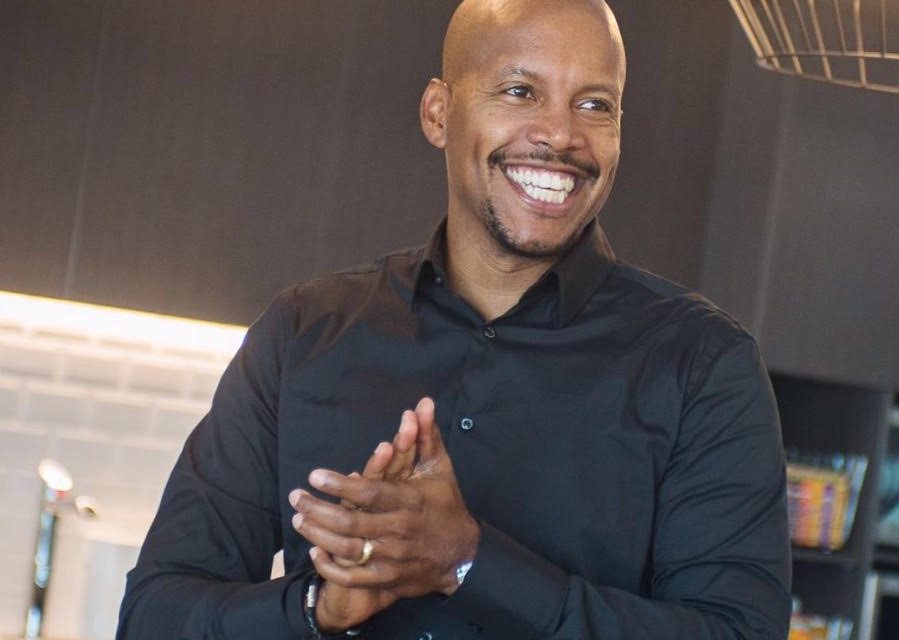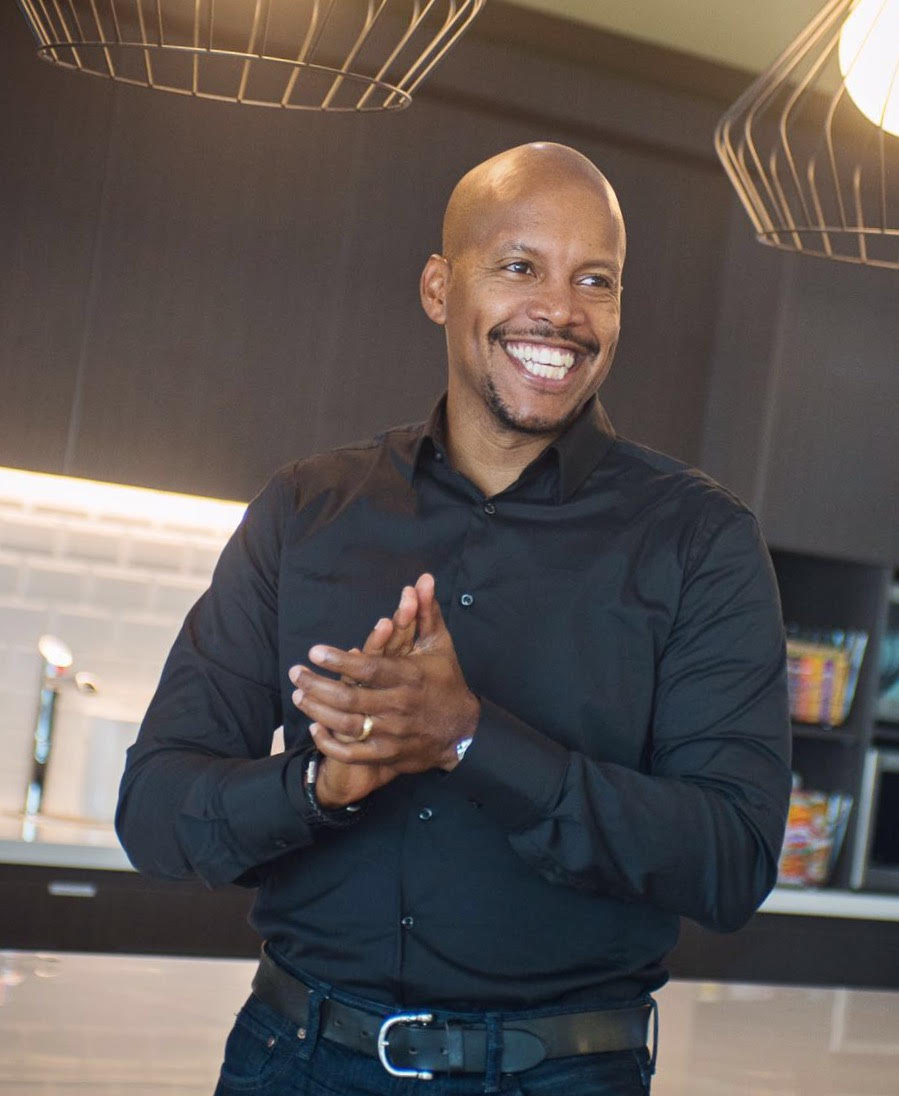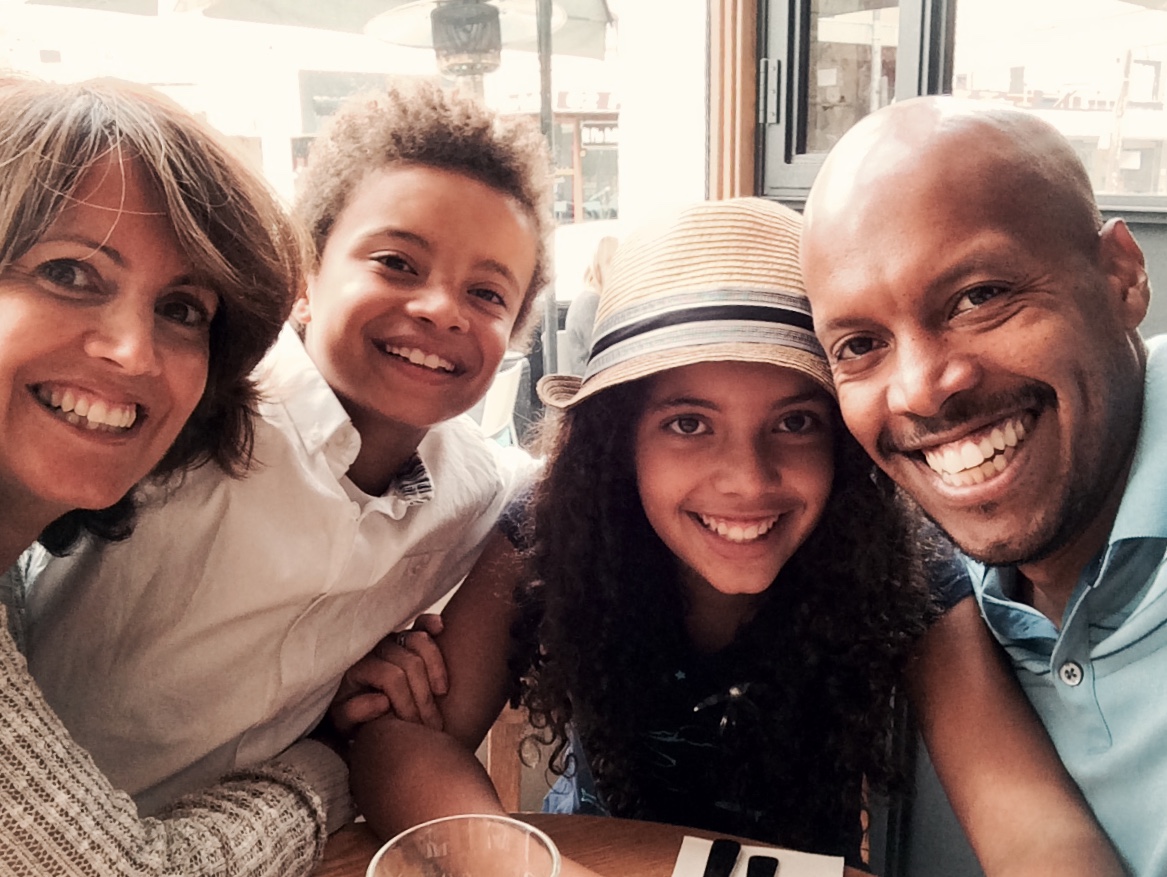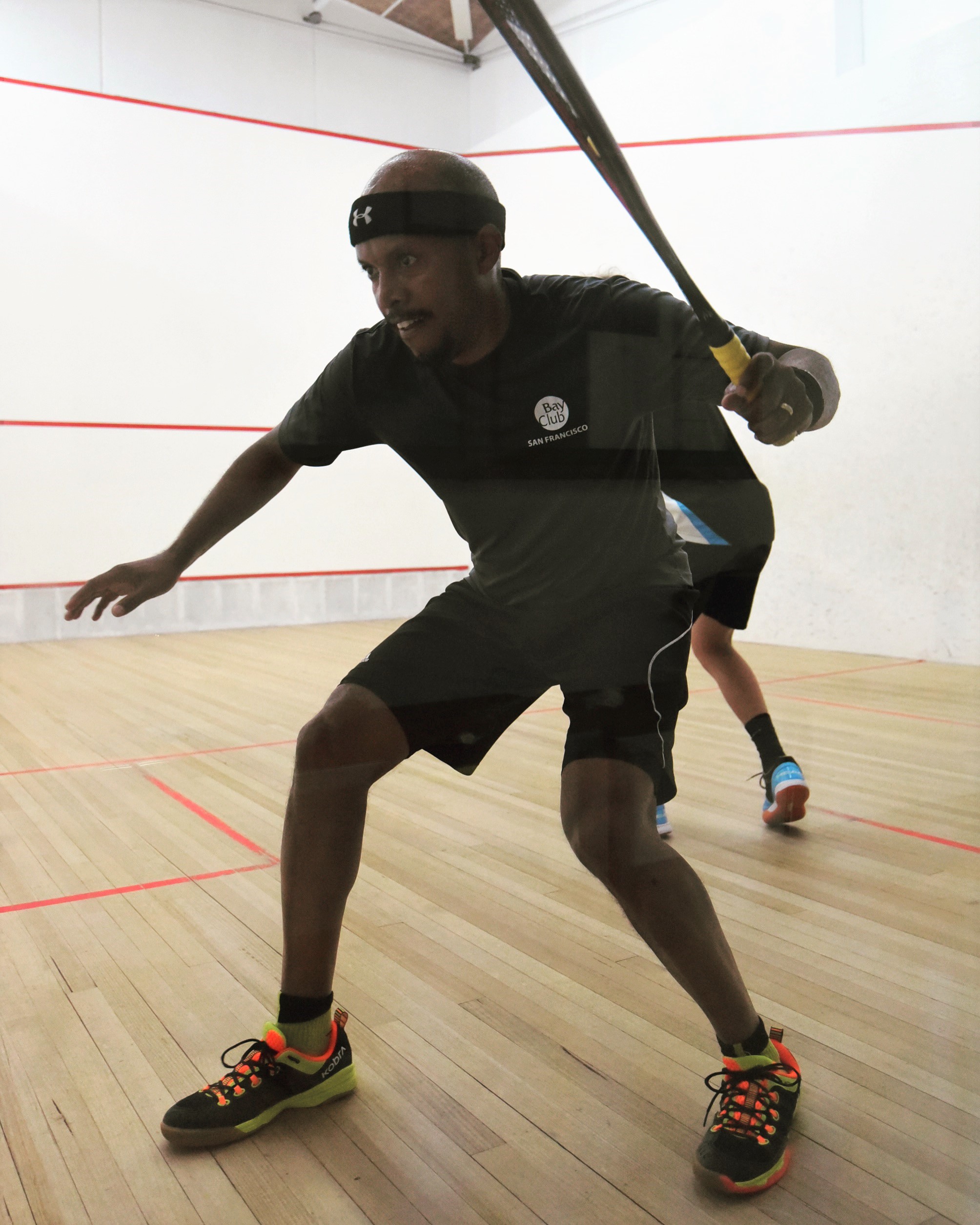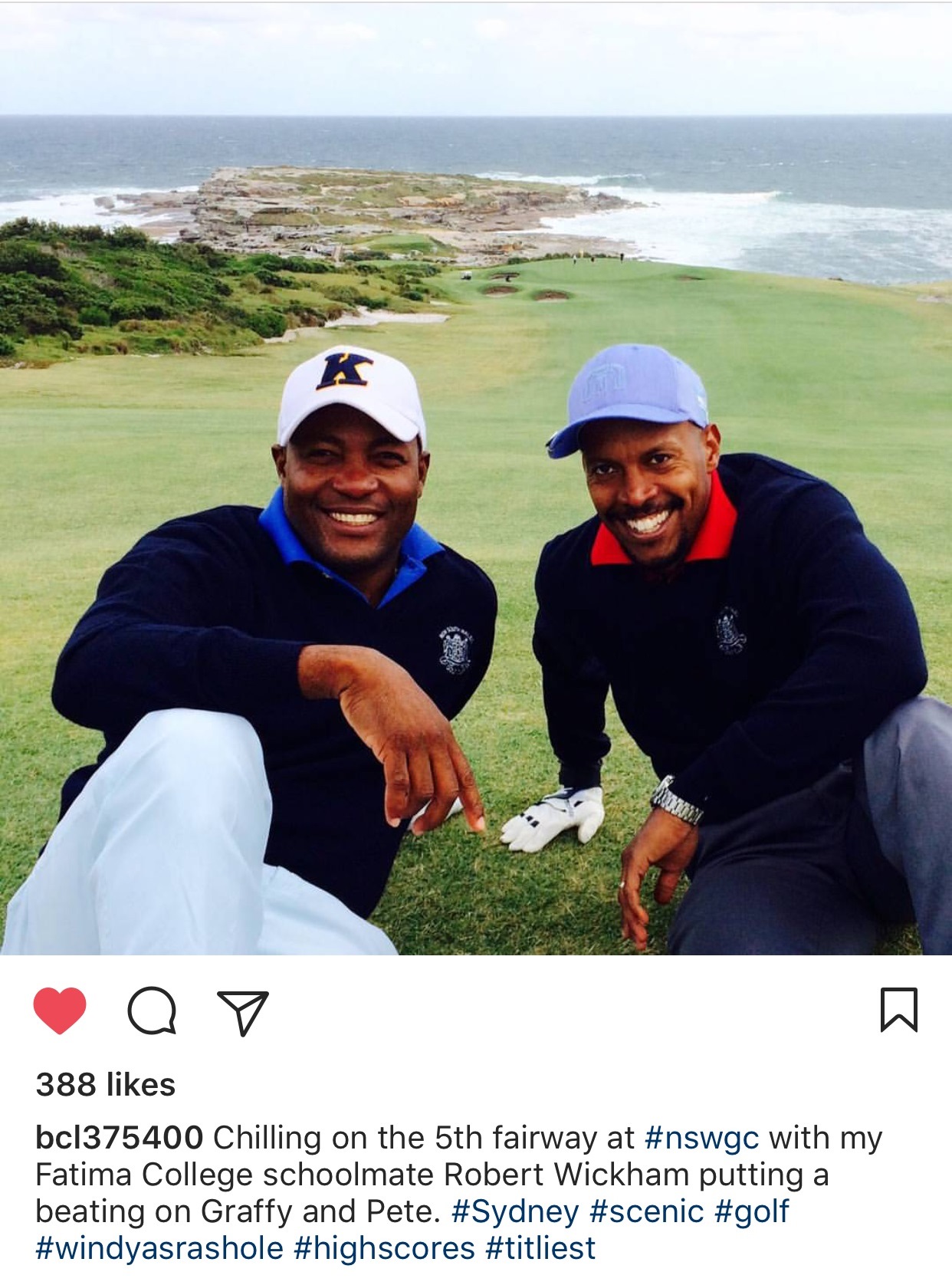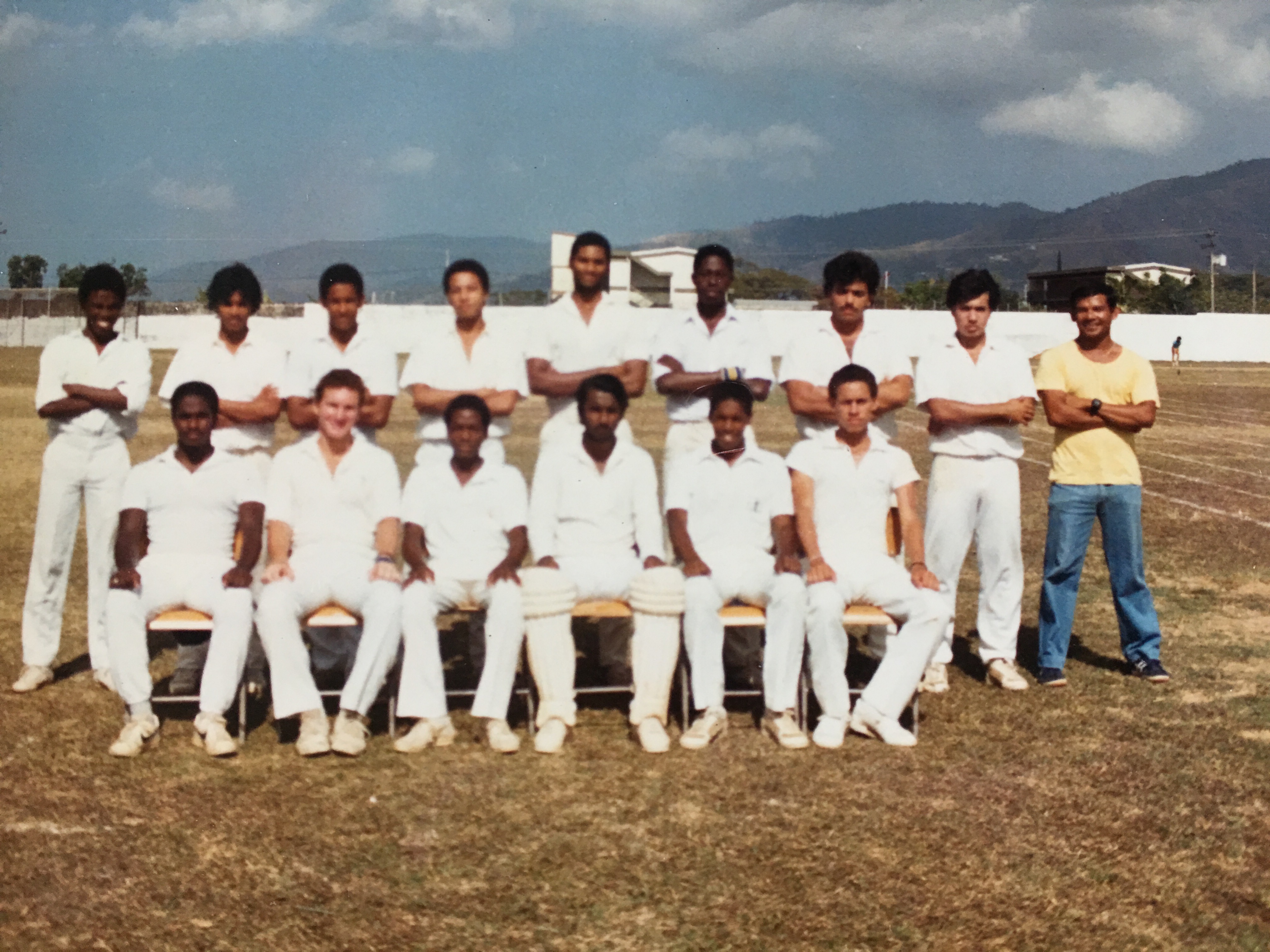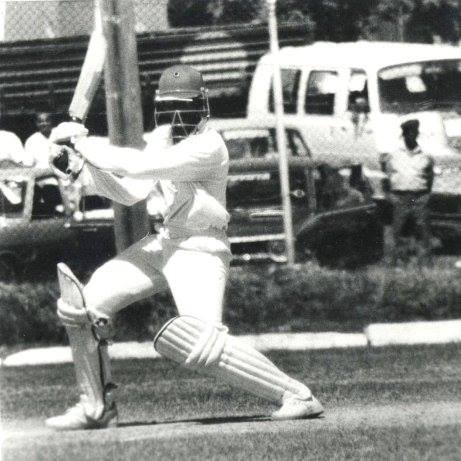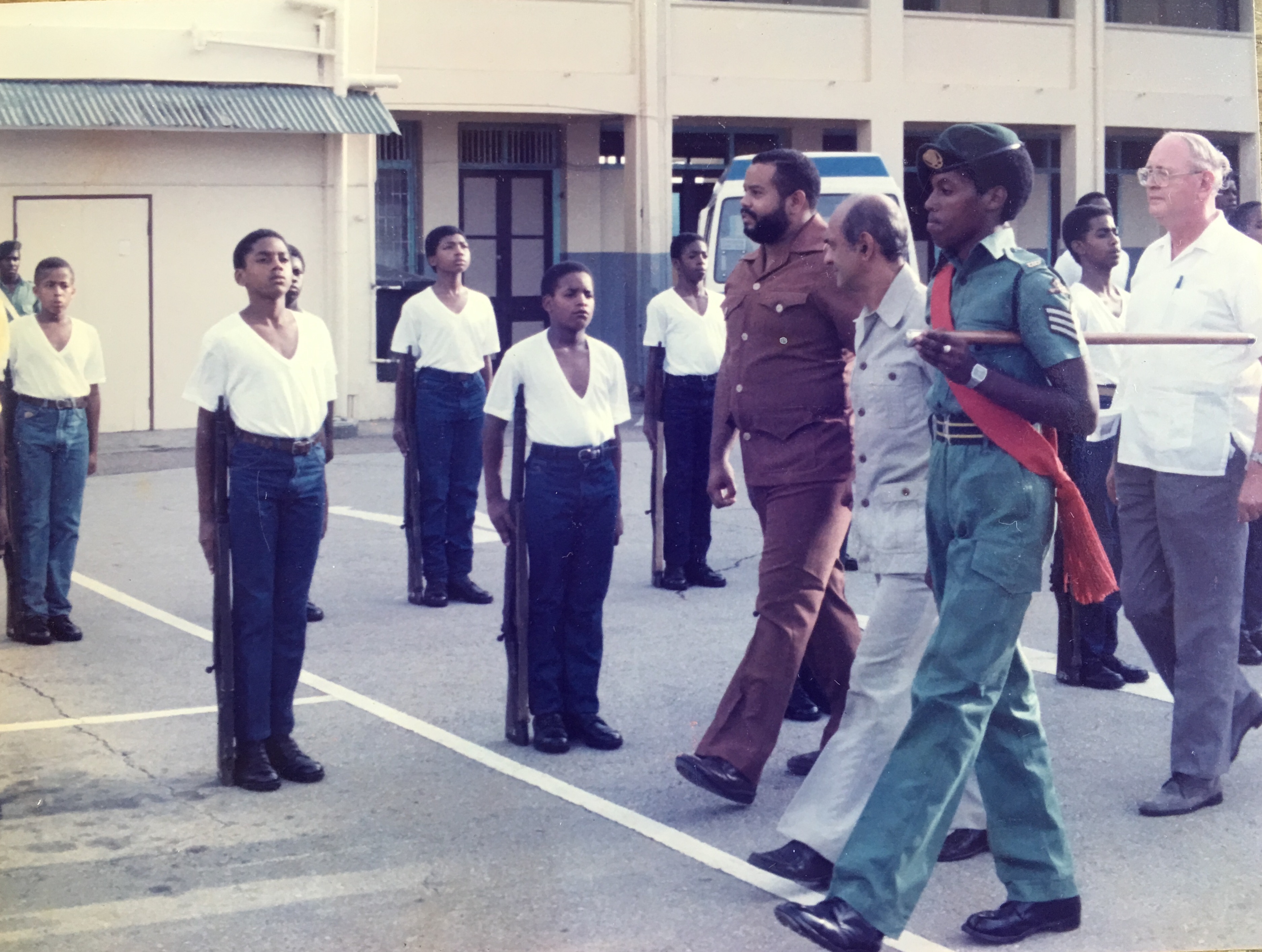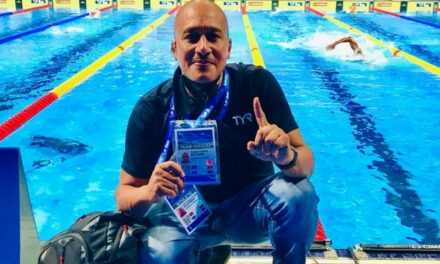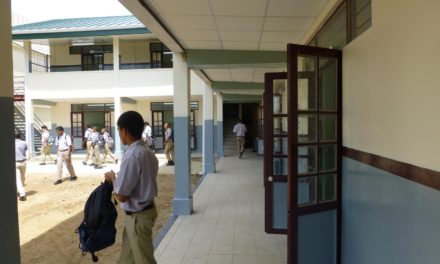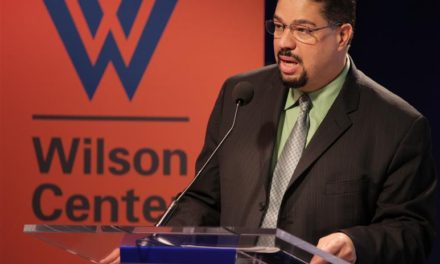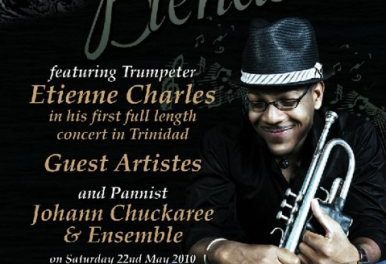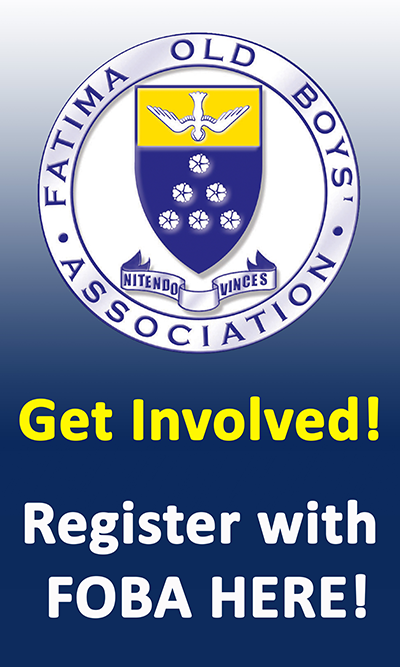- Views 5171
- Likes
Interviewer: Raymond Samms
Robert Wickham attended Fatima College from 1981-1988. After graduating from MIT, he strode into Harvard Business School for his MBA; then maintained his meteoric trajectory across the world’s business skies: a globe-trotting airline specialist with Boston Consulting Group; founder of a low-cost airline (later sold to EasyJet); joining a tech-based startup (sold to the giant Oracle), this taking his career to Australia for Oracle; finally pausing Down Under with the cloud computing pioneer Salesforce.com.
Robert has blazed his way onto the world stage to make a credible claim for the title of ‘Fatima Renaissance Man’.
Q: What was the biggest piece of mischief you got up to during your years here?
A: Some things are better left unsaid
Q: You taught Form 1 Math at Fatima for 1 year. Describe that experience in 3 words.
A: Exhilarating. Challenging. Rewarding.
Q: Who was the better cricketer – you or Lara?
A: Brian was the better batsman – I was the better bowler.
Q: You have an accomplished sister who the country loves – Ms. Lisa Wickham. Describe the rivalry between you two please.
A: As school kids, Lisa & I had the stereotypically love-hate relationship you would expect from type A siblings. What is personally gratifying though is to see how our relationship has blossomed over the years where we are genuinely proud of each other’s accomplishments and continually find ways to support each other – even though we live on the other sides of the planet.
Q: Your mother was a principal – how did this shape you?
A: My mother was one of the most influential people in my life. “First things first” she used to say. And academics was always first – no compromise. This instilled in me from an early age the value education and life-long learning.
Q: You are not only academically talented, but blessed with sporting and artistic skills. What were your major activities and hobbies in primary school and when/how did you start? Who encouraged and pushed you?
A: I loved art and drawing as a child. Apparently, I had some talent. There’s an infamous incident in our family where I submitted a painting of Lady & the Tramp for a inter-school competition and was disqualified because they didn’t believe I did it. Pitching marbles was also a childhood hobby – but I wasn’t very good at that.
Q: What influenced your choice of Fatima College for Secondary School?
A: Everyone around me insisted that I put CIC as my first choice. The pressure was intense. But for reasons I don’t completely recall I was bent on going to Fatima. I was drawn to the reputation Fatima had at the time for producing rounded students and athletes. My mother, in the end, said it was my decision provided I made the most of the opportunity.
Q: What are your best and worst memories when you think of your Fatima years? What other thoughts come to mind?
A: I don’t have any bad memories from Fatima. Lots of great ones – from staging Joseph & His Amazing Multicolor Dreamcoat with Troy Gatcliffe & Kwame Ryan, to the inaugural Gary Sobers Cricket Tournament in Barbados. The friendships that were established and endure to this day are really the greatest treasure.
Q: Truthfully, how did you balance academics – ultimately attaining a National Scholarship – with being an athlete, all-levels cricketer selected for National Under-19 duty with Brian Lara, Cadet Staff Sergeant, and achieving the distinction of undefeated Calypso Champion. Surely some things faltered at times.
A: I look back now and realize that between Form 4 and 6 was probably the most focused I have ever been. It was easy for me then to filter out distractions – plus I didn’t have the internet nor the interrupt driven life I now lead to contend with. In forms 5 & 6 I spent a lot of time at the school. I had two goals at that time – to win a National Scholarship and to make the under-19 National Cricket team. I would arrive early to work on academics (Troy Gatcliffe & I commandeered the back of Fr Girod’s office as a study zone) and stay late to practice cricket (sometimes by myself bowling to one stump against the shed where the new 6 form wing now sits – much to the annoyance of Fr. Power) after which I would get a meal from Mary (who cooked for the priest – yes I ate their food!) and then spend a few hours studying before my mum collected me around 8pm.
Q: What was your Calypso sobriquet, did you write any songs, and give us a line from your favourite rendition.
A: Can’t remember if I had one – if I did, it obviously wasn’t memorable. In the first year, my sister and I used the same song for our respective competitions (debatable to this day which one of us wrote it). I won but she didn’t which was not a good domestic scene for quite some time. In subsequent years, I collaborated with Kwame Ryan – we took it very seriously and even had writing retreats at his dad’s place down the island. Favorite line: “Power, power, power is de cry – the whole world of politics, is a lesson for you and I.” Still applicable today it seems.
Q: Which teacher positively impacted your school experience and life the most and which one did you give the most trouble?
A: there were many that positively impacted me. Mr. Ramdass gave me a hard time at cricket practice but I realize now that was his way of getting the best out of me. Mr. Garcia is probably the reason I discovered and went to MIT. I am eternally grateful to Mr Aloysius Joseph (RIP) who coached me through writing my MIT application essay while sharing many boneless rotis. Mr. Achille cultivated my love for math & science.
Q: How did you choose the subjects that would lead to your career choice? When did you know what path you wanted to embark on professionally?
A: I interview prospective MIT students here in Melbourne and I always get asked this question. In hindsight, it was less me choosing the subject but rather the subjects choosing me. You are naturally drawn to subjects you are interested in. This creates passion which allows you to get better at these subjects and reinforces the cycle. In the end, I advise the students I interview to focus less on specific subject and careers (unless you have a strong passion for a specific vocation such as medicine or law) but rather follow your interest and passions and develop fundamental skills that will serve you well in life – such as resilience, ability to handle complexity, to learn, to break down a problem into first principles.
Q: What is the one aspect of Fatima culture that you hope will endure for the lifetime of the school?
A: The balance between sporting and academic excellence.
Q: Could you give us a synopsis of your athletic and cricketing endeavours at Fatima. What key rivalries do you remember? What was your most enduring memory?
A: I always looked forward to inter-class football. I was a fantastic goalkeeper (in my own mind). Most enduring memory is breaking my wrist while (as an under 14) trying to see if I could save shots from the first eleven team. My mother wasn’t impressed.
Q: As a member of the T&T National Under-19 cricket team in 1987, you were captained by your classmate at the time, Brian Lara. Tell us about that time. What was your team position? What were the team dynamics like? Did you all sense that Brian would go on to be the global superstar that he did? Did you all ever prank him and do you keep in touch with Brian now?
A: Playing for the under-19 team continues to be one of my fondest memories. Our first match was against the tournament favorite Barbados and the starting 11 was not to be announced until the morning of the game. Brian whispered to me the night before though that I was starting and to get prepared. I took a fantastic diving catch in fine leg to dismiss star batsman Roland Holder which I later learned cemented my position on the team for the remaining matches.
My other favorite memory was also from this first match. After dismissing Barbados for a low total, I sat next to Scott Rodrigues (both of us were batting low in the order) to relax and watch us chase down the total – at least so we both thought. Within a flash we were both padded up as our lineup was succumbing to Barbados’ ferociously fast bowling. Brian was still batting but was quickly running out of partners. Soon I was in the middle with him. With intense eyes, he greeted me with “I don’t care what you do, just get me the strike!” Not an easy task as I couldn’t even see the ball as it whizzed by. From this vantage point, to see Brian dispatch that very bowler for multiple boundaries made it clear that he was not only a cut above, but headed for greatness.
Recently Brian & I have been able to see a bit of each other as he loves to come to Australia for the golf season.
Q: Have you been able to maintain friendships with your classmates since school? Did your class year have a reunion?
A: Many of my closest friends are from my Fatima days. Graham Fernandes attended MIT with me during which time Troy Gatcliffe was also in Boston at Tufts University. Those years certainly strengthened our friendships and we remain in close contact to this day. I had the wonderful (and surreal) experience of seeing Kwame Ryan make his American debut in Houston as well as his Australian debut in Hobart.
My class’ 25th reunion was the week that my family was moving from Boston to Australia so I couldn’t attend. From all accounts, I missed a real treat. I try to get together with the boys each time I visit. Our class has a core group that plans reunions and in so doing has rekindled our class spirit. There is even a Whatsapp group ripe with ole talk.
Q: After leaving Fatima, you attended MIT, where you earned a Bachelor’s and Master’s Degree in Aeronautical Engineering. Explain that path and describe your time at such a prestigious institution.
A: MIT was an incredibly intense and life changing experience. The caliber of people (students and faculty) was inspiring yet also intimidating. It was like a gym for the mind – where you get to exercise and develop certain fundamental strenghts. I made some wonderful friends there from various parts of the world. I was also fortunate to serve on the Board of Trustees after graduating which gave me insight into the inner workings of the Institute including how it maintains such a high standard.
Q: Since Americans do not play cricket, you decided to play squash while at MIT, during which time, the varsity team was one of the best in the country. Had you played squash before going to MIT? Was picking up squash challenging? What role did squash play in your MIT life?
A: Fr. Defour introduced me to squash the year I was teaching at Fatima and he encouraged me to consider playing at MIT. I remember as a varsity player the older professors would come for a hit with the team and take ages to warm up. One professor sensed my frustration and told me “son, one day you will understand.” I have grown to truly love the sport and continue to play competitively in the Melbourne club circuit. Recently I was warming up with a young player and sensing his frustration with my lengthy process I realized I had come full circle.
Q: You have racked up quite the resume over the years. What was the most challenging role and which was the most rewarding?
A: My most challenging and rewarding role was when I took over running the north American sales team for the technology startup I was with in Boston called Empirix. I knew nothing about running a sales team, especially one in need of a turnaround. The GM who asked me to take on the role told me he had full confidence in my ability to figure it out. It was very rewarding to see many members of the team grow to become accomplished and successful. One took over leadership of the team when I left for Australia. Seeing people develop and blossom is ultimately the most gratifying part of any of my professional experiences – when that happens, all the other good things follow.
Q: Seriously speaking now, how do you – a. keep going at the pace you have, b. do so many different things from work to volunteerism and c. maintain a full family life?
A: It’s not easy. As my career continues to progress, balance becomes more challenging. I am a creature of habit and routine (as my wife Kristin loves to remind me) which helps me restore balance on the weekend. I am learning to say “no” to more things to create space to spend with family and focus on priorities at work.
Q: In 2014 you received the MIT Alumni Association’s highest award, the Bronze Beaver, which is bestowed on alums in recognition of distinguished service to the institute and/or its Association of Alumni and Alumnae. What did receiving this award mean to you?
A: MIT also played a big role in my life – so to receive this recognition was incredibly humbling and gratifying.
Q: The following year, you were a member of the inaugural batch of individuals inducted into the Fatima College Hall of Achievement. Not meaning to put you on the spot but how did this achievement feel?
A: This was also a tremendous honor and completely unexpected. It is quite special to be part of this distinguished inaugural bath with contemporaries such as Kwame, Ato and Brian.
Q: You currently reside in Australia and have an amazing spouse with whom you are raising two children. Could you please introduce them to us and give an insight into how family life has changed you.
A: Kristin is the yin to my yang. She is an incredible human being. She is a trained artist and is now exploring pottery. She is the rock of our family. Kristin was born in Boston to Australian parents (her dad was completing his PhD in sociology at Harvard at the time) and grew up in Brazil (where her dad did his postdoctoral research). As a result, Trinidad feels like “home” to her – especially carnival. We met serendipitously through Fatima alumni Roger Philip (whose three sons also attended Fatima during my stint) at one of his carnival parties in Melbourne. Our daughter Zoe is 13 and has her mother’s artistic talents as well as a knack for academics. She also loves playing tennis. Benjamin (10) is obsessed with sport. He has decided he will focus on golf after he breaks Brian’s batting record. I think he’s probably the only kid who can claim to have played backyard cricket with both Brian Lara and Viv Richards.
Q: Your volunteering and philanthropy is driven by a similar mottos to your work philosophy – “There’s a lot of fulfillment knowing that you’re working to move the needle in a positive direction” – What are the future areas you wish to invest your time, effort and resources into to make a community impact?
A: I am focused on helping others get access to the type of education I had – it is a true superpower that can bend the curve of your life. That’s why I interview prospective students for MIT as well as financially support both MIT and Fatima.
Q: What do you see as the biggest challenge for the young boys of this era and what can Fatima do to support this?
A: Before I started interviewing prospective students for MIT I asked the Dean of Admission which qualities they are looking for. He replied – resilience, intellectual curiosity and excellence. These are the qualities I try to instill in my two children. Resilience – the ability to overcome adversity, to get back up. Intellectual curiosity – the passion for learning, a growth mindset. Excellence – the willingness to work hard to become great at something, to invest the 10,000 hours Malcolm Gladwell talks about in his book “Outliers.”
But in today’s world many millennials find these qualities difficult to develop – especially resilience. Fatima provided an ideal environment for me to work on these qualities at an early age through the combination of the various academic and extracurricular activities. Fatima should certainly continue to be intentional in instilling these qualities in the students.
Q: Do you return to Trinidad often and what’s the first thing you want to do after you land?
A: When we lived in Boston we returned most Christmas holidays. Since we moved to Australia 5 years ago its more challenging to return home frequently – we have only returned once in the past 5 years. Hoping to change that.
Get a doubles at the airport then go to KFC, regular not spicy. Note – I never eat KFC anywhere else on the planet.
Q: How do you eat your doubles – what is your ‘sauce mix’ and where is your favorite doubles spot?
A: Long circular road for convenience as its next door to where my mum lives. Slight with everything.
Q: How do you satisfy your need for Trini culture on your side of the world? Is there a roti shop in Melbourne or a Caribbean carnival? Maybe an all fours lime or you get to occasionally drink a Stag or Carib that a friend smuggled in for you?
A: Sadly no roti shops in Australia. Roger Phillip is the de facto ambassador of Trinidad & Tobago in Australia. He does a wonderful job brining the locals together – often at his house for local fare. He also organizes an annual carnival section in the Melbourne Moomba Parade (which celebrates multiculturalism). I am still perfecting my mother’s curry recipe.
Q: Any closing comments?
A: Even though I now live on the other side of the planet, I still feel a very strong connection to Trinidad and especially Fatima College. I am deeply grateful for the formative experience and the enduring friendships.
